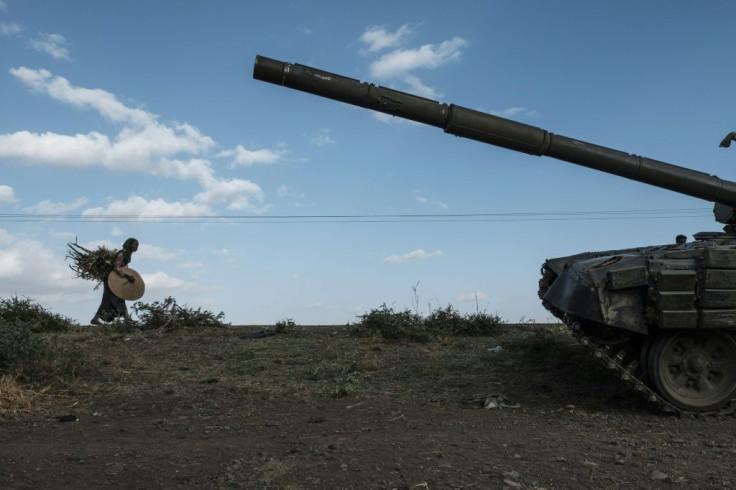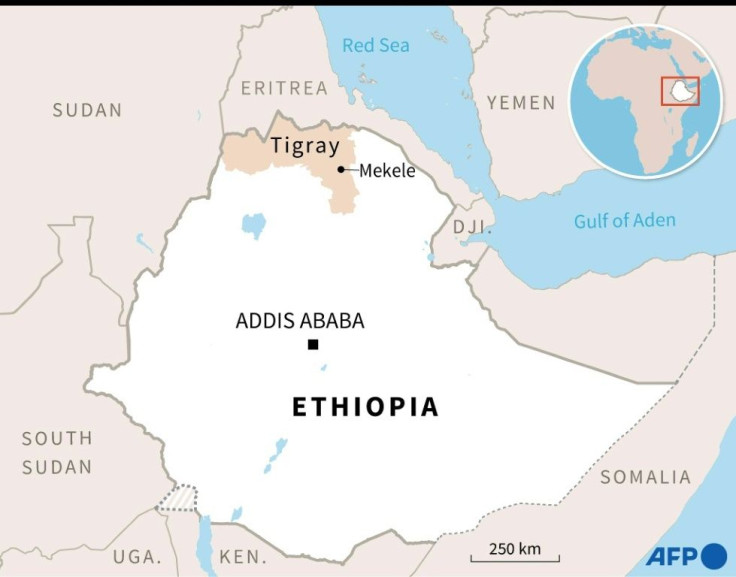Tigrayan Rebels Claim Ethiopian Town In Major Advance Denied By Govt
Tigrayan rebels on Sunday announced they have captured a strategic northern Ethiopian town, but the government denied the claims, saying federal forces were mounting a "fierce" battle for Kombolcha and the city of Dessie.
If confirmed, the capture of Kombolcha on Sunday, which came a day after the rebels claimed control of Dessie, would reflect a rapid advance by the Tigray People's Liberation Front (TPLF) in the nearly year-long war.
"Firmly in control of #Kombolcha," TPLF spokesman Getachew Reda said on Twitter, marking a major step in the rebels' offensive since they retook most of Tigray from federal forces in June and expanded into neighbouring regions.
But government spokesman Legesse Tulu told a press conference that, "There is currently fierce fighting in Dessie and Kombolcha."
Much of northern Ethiopia is under a communications blackout and access for journalists is restricted, making battlefield claims difficult to independently verify.
The fighting in Kombolcha, south of Dessie, has fuelled speculation that the TPLF was heading closer to the Ethiopian capital Addis Ababa.
Getachew said the TPLF, which dominated national politics for three decades until 2018, had no "other motive than breaking the deadly siege" on Tigray, which is in the throes of a severe humanitarian crisis.

In Kombolcha, frightened residents told AFP they had spent the day holed up in their homes as gunfire reverberated in the streets, with TPLF fighters clashing with Ethiopian soldiers and local militias.
Semira, 36, one of the few people to step out on Sunday, said she spotted the rebels marching down the street after she finished praying at a local mosque.
"I saw some soldiers... going out of the city with a few trucks," she told AFP.
A shopkeeper who gave his name as Hamdiu said he also witnessed Ethiopian troops leaving on trucks.
"The city is scary quiet now... all the people are indoors," he told AFP, adding that he could see TPLF fighters on the streets through his window.
In a Facebook post, Prime Minister Abiy Ahmed urged Ethiopians to use "any type of weapons... to block the destructive TPLF, to overturn it and bury it".

"Dying for Ethiopia is a duty (for) all of us," he said, echoing an earlier call by the Amhara regional government asking residents to safeguard their neighbourhoods.
The administration of Amhara -- where Kombolcha and Dessie are located -- also issued a decree on Sunday ordering all government institutions to suspend their regular services and divert their budgets and their attention to "the survival campaign".
Dessie witnessed renewed gun battles on Sunday, with Ethiopian troops ordering residents to stay indoors, despite reportedly retreating a day earlier.
Desta, a former waiter who gave only his first name, said he saw soldiers fighting in the streets.
"They are firing but I had to close my window... to not get spotted," he told AFP.
Residents earlier reported a heavy military build-up in Dessie, which lies about 400 kilometres (250 miles) north of Addis Ababa, as civilians fleeing conflict-hit towns further north poured into the city seeking refuge.
Elsewhere in Amhara, rebels from Ethiopia's largest region Oromia -- who are allied with the TPLF -- announced that they had also made territorial gains against government forces.
"OLA Northern Zone has moved into Sanbate and Kamise in Wollo," Odaa Tarbii, a spokesman for the Oromo Liberation Army, said on Twitter.
Meanwhile, Ethiopia's military carried out an air strike on Tigray on Sunday -- the latest in a campaign of aerial bombardments that began nearly two weeks ago as the military steps up its use of air power.
The strike near the regional capital of Mekele targeted a "military training facility (that) served as a recruiting and training centre" for the TPLF, Ethiopia's government communication service said on Twitter.
No casualties were confirmed but a hospital official said an earlier strike on Thursday killed 10 people, while the UN said two strikes on October 18 killed three children.
The government said the facilities bombed were military in nature and aiding the TPLF.
The bombings have drawn international censure and disrupted UN access to the region where an estimated 400,000 people face famine-like conditions under a de-facto aid blockade.
The conflict erupted last November when Abiy deployed troops in Tigray, promising a swift victory. But the operation instead spiralled into a prolonged war marked by massacres, mass rapes and a humanitarian crisis.
© Copyright AFP 2024. All rights reserved.





















